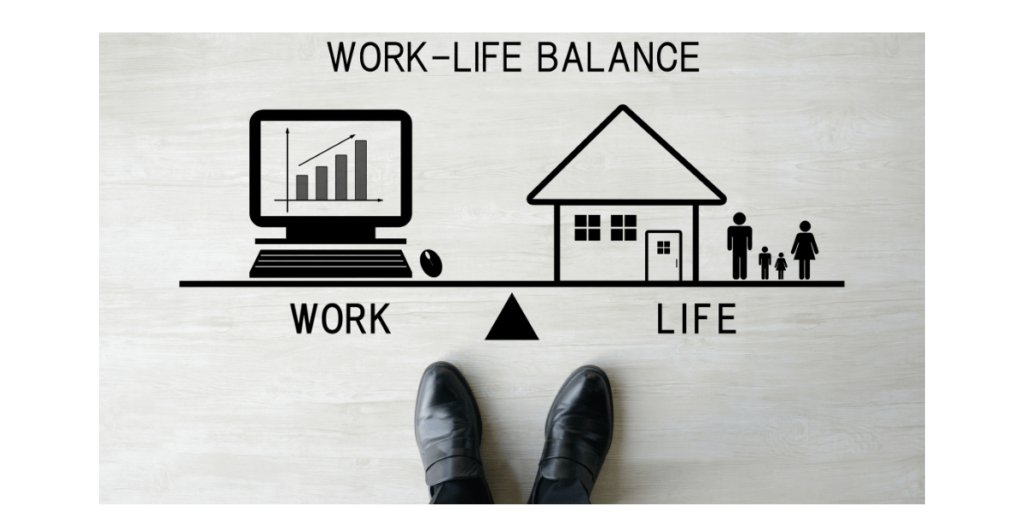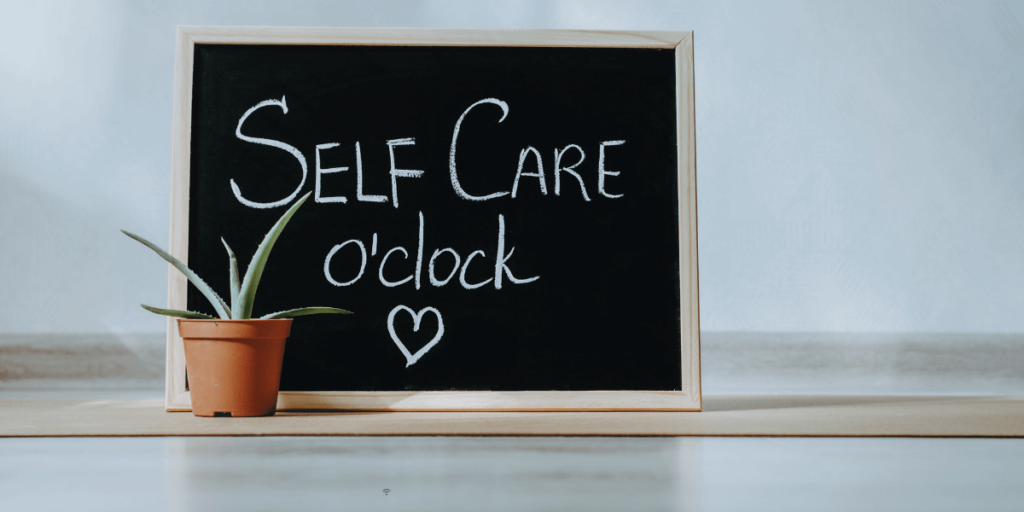Finding the perfect balance between work and life can seem like a daunting task, especially in today’s fast-paced society. With the rise of remote work and constant connectivity through digital devices, the lines between professional duties and personal life have become increasingly blurred. Achieving a healthy work-life balance is essential for maintaining physical, mental, and emotional well-being.
In an ideal world, we would seamlessly juggle our professional responsibilities and personal interests without one overshadowing the other. However, the reality involves stress, fatigue, and often burnout due to poor time management and lack of self-care. Recognizing the significance of this balance is the first step towards mastering it.
One might wonder how to start this journey towards achieving work-life balance. The answer lies in understanding that both work and personal life are integral parts of our existence. Hence, they should complement each other rather than compete. By fostering a symbiotic relationship between these two aspects, we can lead a more fulfilling and productive life.
Ultimately, mastering work-life balance requires a deliberate and conscious effort to incorporate self-care into our daily routines. Self-care isn’t merely a luxury; it’s a necessity. Focusing on essential self-care tips and adopting practices that promote balance will help create a more harmonious lifestyle.
The Power of Daily Self-Care
Self-care is the practice of actively taking steps to preserve or improve one’s own health. It encompasses a wide range of practices, from physical health activities like exercise and diet to mental health strategies like therapy and mindfulness. Embracing daily self-care habits is crucial for mitigating stress and enhancing overall well-being.
Engagement in self-care has a ripple effect on all areas of life. For example, taking time to relax and recharge can boost productivity and creativity at work. Self-care also fortifies mental resilience, allowing one to handle work pressure more effectively and maintain a positive outlook.
There are several forms of daily self-care, each serving to enhance different aspects of life. Physical self-care might include regular exercise, nutritious meals, and adequate sleep, whereas emotional self-care could involve journaling, meditation, or spending time with loved ones. Social self-care emphasizes fostering relationships that support and uplift, reducing feelings of isolation.
Optimizing Your Morning Routine for Success
A well-structured morning routine can set the tone for a successful day. When we start our day on the right note, we are more likely to stay focused, productive, and less stressed throughout the day. A morning routine should consist of activities that energize and prepare the mind and body for the day ahead.
Begin by waking up at a consistent time each day. This helps regulate your body’s internal clock, making it easier to rise and shine without feeling groggy. As you wake up, engage in a brief stretching exercise or yoga session to invigorate your body and mind. Drinking a glass of water can also help kickstart metabolism and detoxify the body.
Incorporating a few minutes of mindfulness or meditation practice in the morning can significantly enhance mental clarity and focus. Additionally, dedicating time to prepare and enjoy a nutritious breakfast can fuel your body and improve cognitive function. Avoid heavy, carb-laden meals in the morning as they can cause sluggishness and decrease productivity.
Here is a sample morning routine table:
| Time | Activity |
|---|---|
| 6:00 | Wake up and drink water |
| 6:15 | 15 minutes of stretching or yoga |
| 6:30 | Meditation or mindfulness practice |
| 6:45 | Shower and get dressed |
| 7:00 | Prepare and eat a healthy breakfast |
Choosing Nutrient-Rich Foods for Better Performance
The food we consume directly impacts our physical and mental performance. Nutrient-rich foods provide the energy required to execute daily tasks and improve cognitive functions such as memory and concentration. Embracing a balanced diet is an essential self-care practice for mastering work-life balance.
Incorporate a variety of fruits, vegetables, lean proteins, and whole grains into your meals. Foods rich in Omega-3 fatty acids, such as salmon, walnuts, and flaxseeds, can enhance brain health and function. Vitamin-rich foods like leafy greens and berries support the immune system and overall health.
Avoid processed foods high in sugars and unhealthy fats, as they can lead to energy crashes and adversely affect mood. Instead, snack on nuts, seeds, and fruits that offer sustained energy and nutrients. Hydration is equally important; drinking sufficient water throughout the day keeps you energized and focused.
Here’s an example of a nutrient-rich meal plan:
| Meal | Foods Included |
|---|---|
| Breakfast | Oatmeal with berries and nuts, a boiled egg, and a glass of water or green tea. |
| Snack | Greek yogurt with honey and mixed fruit |
| Lunch | Grilled chicken salad with mixed greens, tomatoes, cucumbers, and olive oil. |
| Snack | A handful of almonds and an apple |
| Dinner | Baked salmon, quinoa, and steamed broccoli |
Incorporating Physical Activity into Your Day
Physical activity is a cornerstone of holistic self-care. Exercise not only strengthens the body but also alleviates stress, improves mood, and sharpens the mind. Incorporating regular physical activity into your daily routine is crucial for maintaining a balanced lifestyle.
Find an exercise routine that you enjoy, as this will increase the likelihood of consistency. Whether it’s jogging, cycling, dancing, or hitting the gym, ensure it complements your schedule and interests. A brisk walk during lunch breaks or short stretches between work tasks can also add to your daily physical activity.
Regular exercise enhances cardiovascular health, builds muscle strength, and boosts stamina. It also triggers the release of endorphins, the body’s natural mood lifters, which can help mitigate stress and anxiety. Moreover, physical activity can improve sleep quality, further contributing to overall well-being.
Mindfulness Practices for Improved Mental Health
Mindfulness is the practice of being present and fully engaged in the moment. Incorporating mindfulness practices into daily life can significantly improve mental health and promote emotional stability. It teaches one to approach life with a calm and non-judgmental perspective.
Mindfulness can be practiced through meditation, breathing exercises, or simply by being aware and present in everyday activities, such as eating or walking. It helps create a sense of control and reduces feelings of overwhelm caused by work pressures or personal issues.
By focusing on the present moment, mindfulness allows for better stress management and emotional regulation. It enhances self-awareness, promoting a deeper understanding of one’s thoughts and feelings, leading to more mindful decisions and actions.
Creating and Enforcing Work-Life Boundaries
Establishing boundaries between work and personal life is vital for achieving balance. Clear boundaries prevent work from encroaching on personal time, reducing the risk of burnout. It involves setting limits on work hours and creating a designated workspace free from personal distractions.
One effective strategy is to set specific work hours and stick to them. Communicate these boundaries with colleagues and family members to ensure everyone respects your personal time. Additionally, avoid checking work emails or taking work calls after hours unless absolutely necessary.
A designated workspace, whether at home or office, helps in mentally separating work from personal life. Ensure this space is comfortable and conducive to productivity, free from unnecessary distractions. Having clear distinctions between work and relaxation areas can significantly enhance work-life balance.
The Significance of Taking Breaks
Taking regular breaks throughout the day is an essential self-care tip for maintaining productivity and well-being. Breaks help prevent mental fatigue and enhance concentration, allowing for better performance and creativity.
Incorporate short breaks every hour to stretch, hydrate, or take a quick walk. These breaks can rejuvenate your mind and body, making it easier to return to tasks with a fresh perspective and renewed energy. Longer breaks, such as lunch, should be spent away from work tasks to ensure complete mental relaxation.
Signs that you need a break include difficulty concentrating, increased mistakes, and feelings of frustration. Listen to your body and mind, and don’t hesitate to step away when necessary. Remember, breaks are not a waste of time but an investment in long-term productivity and mental health.
Preparing for Restful Sleep with Evening Routines
A restful night’s sleep is fundamental for maintaining work-life balance. An effective evening routine can prepare your body and mind for restful sleep, ensuring you wake up refreshed and ready for the day. It involves winding down and engaging in activities that promote relaxation.
Start by setting a consistent bedtime and sticking to it, even on weekends. This helps regulate your sleep-wake cycle. Engage in calming activities like reading, taking a warm bath, or practicing gentle yoga in the hour leading up to bedtime.
Avoid screen time at least an hour before bed, as the blue light emitted by devices can interfere with melatonin production, the hormone responsible for sleep. Instead, opt for activities that promote relaxation and calmness. Creating a serene sleep environment with comfortable bedding and minimal noise can also improve sleep quality.
How Quality Sleep Influences Work-Life Balance
Quality sleep is integral to mastering work-life balance. It affects every aspect of our lives, from physical health to emotional stability and cognitive function. Proper sleep rejuvenates the body, repairs tissues, and consolidates memories, preparing us for the challenges of the following day.
Lack of sleep can lead to irritability, impaired decision-making, and reduced productivity, making it difficult to manage work and personal responsibilities effectively. Chronic sleep deprivation is linked to various health issues, including heart disease, diabetes, and depression.
Ensuring you get adequate sleep every night can significantly improve overall well-being and performance. It boosts mood, enhances cognitive function, and fortifies the immune system. Prioritizing good sleep hygiene is crucial for maintaining a balanced and healthy lifestyle.
Assessing and Refining Your Self-Care Strategy
Achieving and maintaining work-life balance is a dynamic process that requires regular assessment and adjustments. Periodically reviewing your self-care strategies ensures they remain effective and aligned with your goals. It involves evaluating different aspects of your life and identifying areas that need improvement.
Start by reflecting on your current routines and identifying which ones contribute most to your well-being. Consider keeping a journal to track your progress and note any changes in mood, energy levels, and productivity. This can help pinpoint which habits are beneficial and which ones need modification.
Regularly setting goals and creating action plans can also help refine your self-care strategy. Consider working with a coach or therapist if you need additional guidance or support. Remember, self-care is not a one-size-fits-all solution, and what works for one person may not work for another.
Conclusion
Maintaining a harmonious work-life balance is essential for leading a fulfilling and productive life. It involves integrating self-care into daily routines and setting boundaries to ensure personal time is protected. By understanding the balance between work and life, we can better navigate the challenges that come our way.
Daily self-care practices, from optimizing morning routines to incorporating physical activity, play a significant role in enhancing overall well-being. Choosing nutrient-rich foods, engaging in mindfulness practices, and prioritizing quality sleep can further contribute to a balanced lifestyle.
Regular breaks and clear work-life boundaries prevent burnout and improve productivity. Assessing and refining self-care strategies ensures they remain effective and tailored to individual needs. By committing to these practices, we can achieve a healthier, more balanced life.
Recap
- Achieving work-life balance requires understanding and integrating both work and personal life.
- Daily self-care, including physical activity and healthy eating, is crucial for overall well-being.
- Mindfulness and clear boundaries between work and personal time enhance balance.
- Regular breaks and restful sleep are vital for maintaining productivity and mental health.
- Periodically assess and refine self-care strategies to ensure they align with personal goals.
FAQ
- What is work-life balance?
Work-life balance refers to the equilibrium between professional responsibilities and personal life. - Why is self-care important for work-life balance?
Self-care practices enhance physical, mental, and emotional health, making it easier to manage work and personal responsibilities. - How can I incorporate self-care into my daily routine?
Simple activities like exercise, healthy eating, mindfulness, and setting boundaries can be integrated into daily routines. - What are some nutrient-rich foods for better performance?
Foods like fruits, vegetables, lean proteins, whole grains, and nuts are great choices for enhancing performance and health. - How does physical activity benefit work-life balance?
Regular exercise reduces stress, improves mood, and enhances cognitive function, contributing to a balanced lifestyle. - What mindfulness practices can improve mental health?
Practices such as meditation, breathing exercises, and being present in daily activities can significantly improve mental health. - How can I set work-life boundaries?
Establish specific work hours, create a designated workspace, and communicate boundaries with coworkers and family. - Why is quality sleep important for work-life balance?
Quality sleep rejuvenates the body and mind, improving productivity, mood, and overall health.
References
- Smith, J. (2020). The Importance of Work-Life Balance. Journal of Occupational Health, 12(1), 45-56.
- Doe, A., & Brown, R. (2019). Nutrient-Rich Diets for Optimal Performance. Nutrition Today, 34(2), 98-104.
- Green, S. (2018). Mindfulness and Its Benefits in the Workplace. Psychological Bulletin, 23(3), 321-335.



